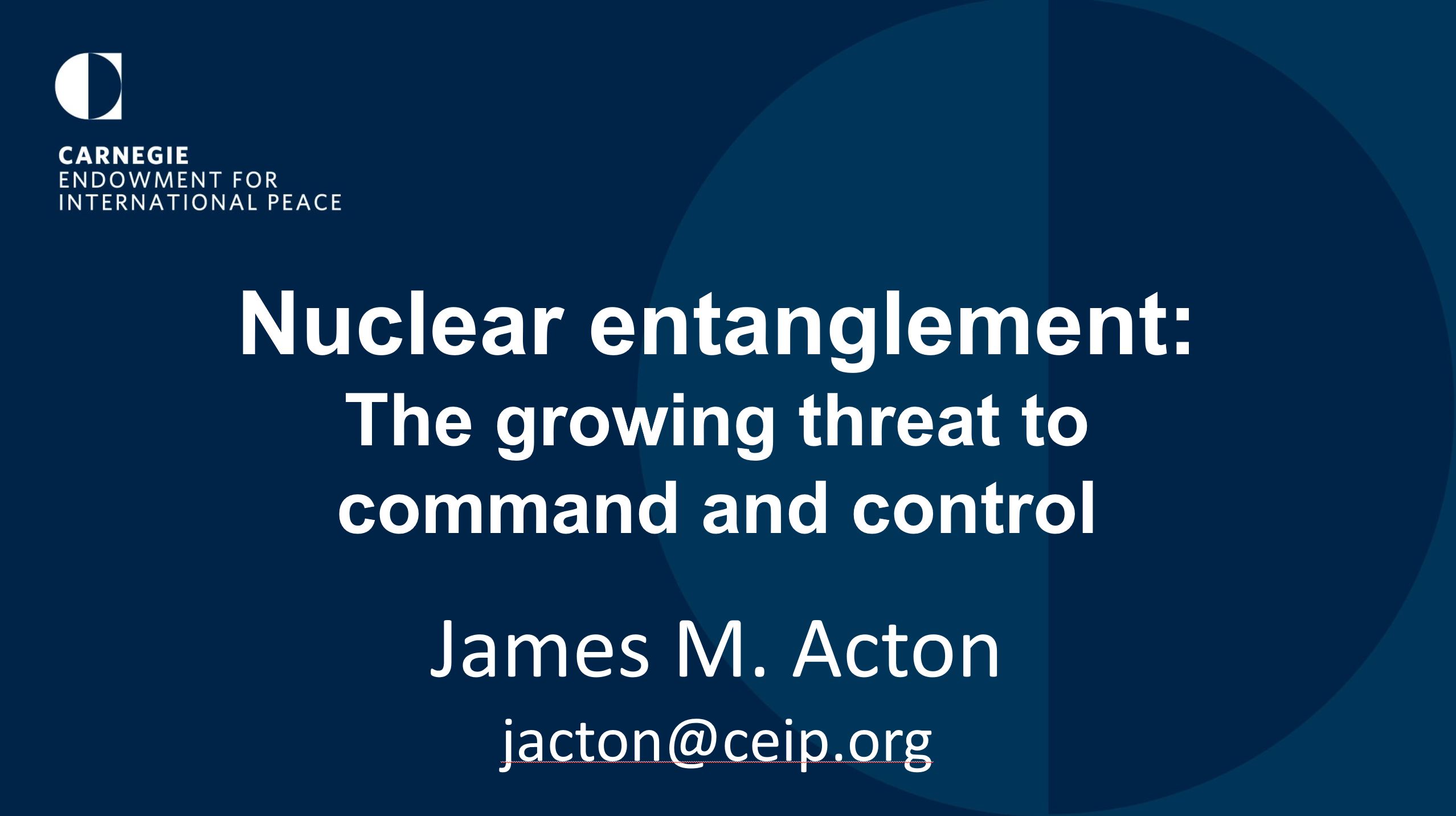Nuclear Entanglement: The Growing Threat to Command and Control
SMA hosted a speaker session with Dr. James Acton (Carnegie Endowment for International Peace) as part of its SMA Contested Space Operations: Space Defense, Deterrence, and Warfighting (Space) Speaker Series.
Date: 19 April 2018
Speaker Session Preview
SMA hosted a speaker session presented by Dr. James Acton (Carnegie Endowment for International Peace) as a part of its SMA Space Speaker Series. Dr. Acton’s talk focused on two findings: 1) Nuclear weapons and their command-and-control (C3I) systems are becoming increasingly entangled with nonnuclear capabilities, and 2) many of the satellites used for nuclear C3I are dual-use and are increasingly becoming vulnerable to damage during a conflict involving either nuclear or nonnuclear weapons. Dr. Acton explained what entanglement is and discussed the four drivers of entanglement. He proceeded to talk about how entanglement is increasing the risk of “incidental” attacks, and he explained how these “incidental” attacks may lead to escalation. Finally, Dr. Acton discussed two basic options in an approach to risk reduction: reducing the likelihood of attack or reducing the consequences, two approaches that are often in contention with each other.
This speaker session supported SMA’s Contested Space Operations: Space Defense, Deterrence, and Warfighting (Space) project. For additional speaker sessions and project publications, please visit the Space project page.
Speaker Session Recording
Briefing Materials
Biography
Dr. James Acton is co-director of the Nuclear Policy Program and the Jessica Matthews senior fellow at the Carnegie Endowment for International Peace. Acton’s current research focuses on the escalation implications of advanced conventional weapons. He has testified on hypersonic weapon development to the U.S. House of Representatives Armed Services Committee and the U.S.-China Economic and Security Review Commission. He is the author of Silver Bullet: Asking the Right Questions About Conventional Prompt Global Strike, and of two Adelphi books, Deterrence During Disarmament: Deep Nuclear Reductions and International Security and Abolishing Nuclear Weapons (with George Perkovich). Dr. Acton is a member of the Nuclear Security Working Group and the International Advisory Board of the Luxembourg Forum on Preventing Nuclear Catastrophe. He has published in the New York Times, the Wall Street Journal, Foreign Affairs, Foreign Policy, Science & Global Security, Survival, and the Washington Quarterly. He holds a Ph.D. in theoretical physics from the University of Cambridge.
Slides

Comments